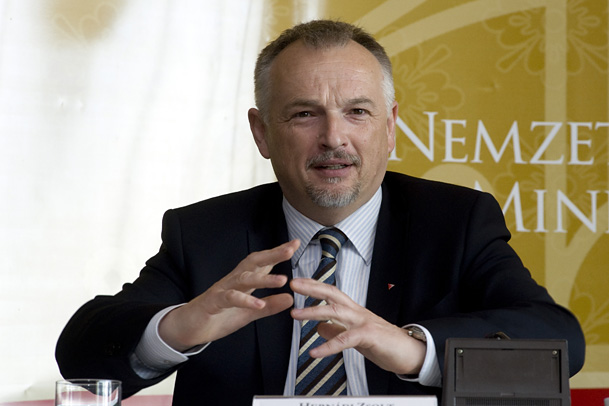Oil company CEO gave public money to the companies of his relative and long-time business partner

The implementation of a European Union venture capital programme aimed to support innovative start-ups in Hungary known as Jeremie Funds has been undermined by serious violations of rules and controversial use of public money, as shown by a massive cache of leaked internal documents, which were obtained by the Hungarian edition of Forbes and analysed by Direkt36.
The European Commission found such grave violations in the programme that in 2015 they blocked the payments for months and imposed a fine of 4.3 billion forints (14 million euros). One of Brussels’ main concerns was that even though the programme was supposed to help businesses in the less developed rural regions of Hungary, several supported companies were operating in the capital Budapest. The Commission also criticized the Hungarian authorities, arguing that they did not take sufficient measures to screen and rule out those violations.
The joint article by Direkt36 and Forbes has revealed several details about the controversial operations of the Jeremie Fund controlled by a company of Zsolt Hernádi, the powerful CEO and chairman of Mol, the Hungarian oil company. The records showed that Hernádi’s fund, Gran Private Equity, gave 840 million forints (2.7 million euros) to a relative of the CEO and a business partner of the relative so that they could pursue property deals that lacked any innovative element.
An employee of the state-owned Hungarian Development Bank, which took part in implementing the Jeremie programme, criticized the property deals supported by Hernádi’s fund. These projects did not match the original objectives of the programme, the staff member wrote in an email to his colleagues.
It was also exposed that Hernádi’s fund was cooperating closely with another fund controlled by his long-time business partner István Garancsi, who is known to be close to Prime Minister Viktor Orbán. Hernádi’s fund even supported a company co-owned by Garancsi.
The Jeremie programme was created to support the innovative projects of start-up companies but Hernádi’s relative, György Bacsa, who works as a director at Mol, used the money to buy properties, which were rented by a bank. After purchasing the buildings, the company did not have to do anything apart from collecting the rent.
Hernádi’s fund claims that they followed the regulations and emphasized that in the investments each side takes risks. The National Economy Ministry, which is in charge of running the Jeremie programme in Hungary, acknowledged that the EU imposed a fine but argued that the country did not suffer any real loss because the money taken away from the programme could be used in other development projects.
The European Union launched its Jeremie venture capital programme in Hungary in 2009. 130 billion forints (422 million euros) are distributed through 28 fund manager companies, which were selected in public tenders. The fund managers are required to bring in private capital, which should amount to 30 percent of every investment. The projects run for 10 years but EU funds do not need to be paid back to Brussels. Hungary can keep the money and can invest it in similar venture capital programmes.
For the Hungarian company data we used the services of Opten and Céginfo.

